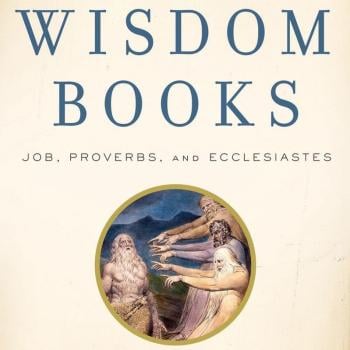Q. In reading your biography one gets a strong sense not only of the contingency of things in Paul’s life and ministry, but also just how much his letters were indeed occasional in nature, largely words on target meant to deal with specific situations, ideas, problems. Yet somehow, these very occasional letters have continued to speak to every generation of Christians, and often speak to those who lack what might be called hermeneutical skills in transferring things from that horizon to ours. Why do you think it is that Paul still speaks so poignantly to us who live in many ways in a very different world (though with the decline of Christianity in the West and the rise of religious pluralisms of various sorts, our world is becoming more like his in some ways)?
A. Paul would have said that all human history had been focused on Jesus as the embodiment of Israel’s God, come to fulfill his promises and rescue his people, overthrow the powers of darkness and summon the whole world to allegiance. That is ‘universally’ true, he would have said, but as in many philosophies (and in the arts etc) the specific circumstances become focal points for wide and potentially ‘universal’ truths. Part of the point of the circumstantial nature of the New Testament is, I think (and I think Paul would have agreed), that every generation, and every thinking Christian, has to wrestle with them afresh and so, hopefully, to ‘grow up in the knowledge of God’ rather than being spoon fed with a book of doctrines and ethics that wouldn’t require interpretation.
Q. Ed Sanders in his recent and last big book on Paul spends a lot of time emphasizing development in Paul’s thought, development tagged to a specific ordering of his letters and selection of those letters. You do at one point talk about development in Paul’s thought, how early on he thought Jesus might well return during his life time, but by the time he wrote Philippians he probably thought it more likely he would die before Jesus came back. Do you think that this development in his eschatology really much changed his theology, or for that matter his methodology? Or would it be better to say, that all along Paul had only reckoned with the possibly imminent return of Christ, but since he had no firm time table for that, or for when he might die, he really didn’t have to change his eschatology from ‘he’s definitely coming back during my lifetime’ to ‘I’ll probably die first’?
A. I haven’t worked through Ed Sanders’s new book but from a quick look I don’t think there is a case to be made for development in what Paul actually believed. Yes, he clearly shifted his point of view from thinking he would be alive at Jesus’ return to guessing that he probably wouldn’t be; but that Jesus might return at any time (not ‘within a generation’ – that is a modern myth!) he had no doubt.















